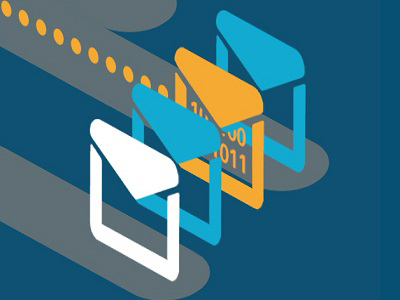How to Define Scam in the Sphere of Cyber Security
Ideally, the Internet should be a safe place where we can browse without any fear. Unfortunately, many dangers lurk on the Internet. Today, almost everyone is a target for scammers who are always ready to steal valuable data from you. When online scammers steal your personal information, they use it to perpetrate fraudulent activities such as identity theft. Some even hoodwink you into paying for products and services that you don't need.

If asked to define scam, the first thing to keep in mind is that you are not too big or too small to be a target. The attack tools and techniques that scammers use typically vary from the use of malware to ingenious phishing attacks perpetrated by cybercriminals. Here are some online scams that you should be aware of.
Phishing Email Scams
You cannot define scam without mentioning phishing attacks that happen via email. Over 30% of cybersecurity incidents begin with phishing emails. These scams continue evolving, something that has seen more organizations and individuals losing their personal data to cybercriminals.
It's vital to define scams of this nature since this knowledge will help you detect and prevent them. Often, phishing emails appear to come from legitimate sources such as bank institutions, social media networks, and other official entities. This way, cybercriminals leverage social engineering techniques to convince potential victims to provide their login credentials or additional personal information eventually.
Cybercriminals behind phishing attacks often create a false sense of urgency. For instance, you might be told that your bank account risks closure, and you need to log into it to confirm your identity. This way, you are likely to provide your login credentials unknowingly.
Credit Card or Bank Loan Scams
Sometimes, people get duped by bank offers that are simply too good to be true. By using such scams, cybercriminals promise unsuspecting victims huge amounts of pre-approved bank loans. Those who swallow the bait are often asked to provide their bank account details. As a result, they end up losing whatever money is in their accounts. Similarly, victims are asked to pay a mandatory "facilitation" fee to the scammers.
Although it seems unlikely for someone to get ensnared in this type of scam, many people still fall victim to credit card and bank loan scams. In case such an offer is made to you, ask yourself whether it's possible for banks to offer customers such large amounts of money without checking your financial situation. To avoid falling victim to this scam, you should watch your accounts carefully to monitor all your online transactions. Besides, take advantage of customer protection services offered by your bank to protect your account.
"Nigerian" Scams
At some point, you have probably received an email, phone call, or text message from someone purporting to be from a foreign country and desperately requires your assistance. Often, they sound so sincere. These scammers will claim to have money that they can't access due to red tape. They promise to reward you with part of that money if you help them pay the fees for freeing up the money. Unfortunately, many people fall for the trick and send cash in the hope that they will earn more. To avoid losing your money in this manner, do not send money to anyone that you don't know.
Lottery Scams
If asked to define scam, one of the first things that will come to mind is lottery scams. This is a classic Internet scam that never seems to get out of fashion. Typically, lottery scams start with emails notifying you that you've won money in an ongoing lottery. However, you must pay some facilitation fees to claim your winnings.
A gullible individual won't even remember that he/she never participated in a lottery competition in the first place. Often, lottery scammers address your wildest fantasies, such as talking up the prospect of quitting your job to travel the world with your new-found fortune. This is something that most people can only dream of. Once you swallow the bait and send the "facilitation fee," the scammers will disappear into thin air.
If you don't remember purchasing lottery tickets or participating in any competition, do not talk to anyone who purports that you've won a lottery. Typically, companies that run lottery competitions don't require winners to pay any facilitation fees. Likewise, you are likely to be notified of any winnings via other channels, including mainstream media. If someone contacts you purporting that you've won a lottery, get in touch with the company running the competition via its official line of communication, to confirm the news.
Everyone faces the looming threat of online scams. Do not wait to be a victim before learning your lesson. Protect yourself today by leveraging NuEduSEC's cybersecurity tools that help you identify scam emails and other techniques that cybercriminals use to steal from you.